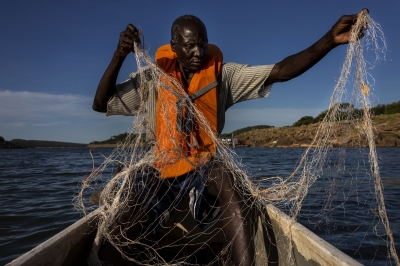Sustainable fisheries in the South West Indian Ocean

Coastal communities in the South West Indian Ocean countries rely heavily on the fisheries sector for their livelihoods, food security and nutritional health. But overfishing, harmful fishing practices and widespread destruction of marine habitats are threatening coastal fisheries across the region.
The health and sustainability of the larger marine ecosystem shared by these countries requires a coordinated approach, from regional to local level. FAO helped design and implement the World Bank-funded South West Indian Ocean Fisheries Governance and Shared Growth Project, or SWIOFish, in Comoros, Mozambique and Tanzania, as well as SWIOFish 2 in Madagascar.
The SWIOFish programme seeks to improve the governance of fisheries at regional, national and community level. The national projects under the programme also aim to improve local livelihoods by developing fishery value chains and promoting the sustainable management of natural habitats.
The projects are helping to strengthen institutions in charge of fisheries, develop legal and regulatory frameworks, prepare fisheries management plans and build capacity to carry out such plans.
Having fishing communities fully engaged is key to sustainable fisheries management – from developing local regulations on fishing areas and seasons to promoting safety at sea and using gear that respects marine habitats and fish resources.
In Comoros, for example, the project introduced a fisheries co-management model involving both fishing associations and the Government in six sites. This approach has empowered local fishers to have a say in the decision-making and management of the coastal areas and fish stocks near their villages.
People living in these coastal communities are often landless and among the most vulnerable and marginalized, with few opportunities to diversify their income sources. Women are generally involved in the collecting, cleaning, processing and marketing of fish and fish products, as well as aquaculture. By strengthening partnerships with the private sector and providing training, extension services and financial education, the projects aim to improve post-capture activities and open up new sustainable income opportunities along the supply chain.
